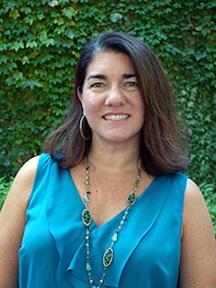By Allison Barrett
Phi Beta Kappa is an organization dedicated not only to excellence in the liberal arts and sciences and but also to diversification in higher education and research. One way education and research are diversified is by breaking down socially constructed barriers erected in the past. A stereotype that remains pervasive in American culture is that scientific research is a masculine endeavor, undertaken in a profession dominated by men. Considering the number of Phi Beta Kappa members whose achievements have increased inclusiveness, breaking down these restrictive stereotypes and opening the world of higher education and professional advancement to everyone is a proud part of the Society’s history.
Elizabeth Nutt Williams, PhD (ΦBK, Stanford University, 1988) is a counseling psychologist, chair of the Psychology Department at St. Mary’s College of Maryland, and a prominent researcher in the field of psychotherapy. With numerous publications and presentations to her name, Williams has sixteen major professional and academic awards and honors to date and was named the 2013 Woman of the Year for the Section for the Advancement of Women of the American Psychological Association, Society of Counseling Psychology. Williams’ research includes investigation of therapist self-awareness and self-focus, as well as offering insight into feminist-multicultural theory and its role in counseling psychology. Additionally, one of her favorite aspects of her career is the ability to work with people, particularly to serve as a mentor for the next generation of students interested in psychological research.
Having a grandmother with a master’s degree in psychology, a grandfather with an MD, a mother with a master’s in library science, and a father with a law degree, Williams grew up in an environment that fostered a desire for higher education. Although she was not interested in psychology until college, Williams said that having the role model of her grandmother in a field that, at the time, was largely male-dominated, was inspirational. However, it was not until she took a social psychology class while pursuing her undergraduate degree that she “fell in love with the subject matter” and began thinking, “this is what I can do,” she explained.
Although it was a social psychology course that set her on the path of psychology, it was the field of counseling psychology to which Williams would dedicate her research. When asked why she specifically chose the field of counseling, she replied that, while she is a scientist and a researcher, she is also a “people person.” “Good science is necessary—but in the end, it needs to be applied,” she added. Williams reports that counseling in particular is a science that, when applied correctly, has a positive impact on people; instead of viewing the client as essentially a patient that is a disordered individual who needs healing, counseling psychologists view the client as a person who has innate strengths that a counselor can assist in unearthing during the therapeutic process.
Many years and many publications later, Williams maintains an active role in developing the theories that are essential to building future empirical research. In collaboration with a colleague, she has a new article forthcoming in a special edition of the Journal of Counseling Psychology celebrating the 125th anniversary of the American Psychological Association. The article focuses on the importance of “client factors,” or the elements related to the client that contribute to the critical client-therapist relationship. Additionally, she is involved in mentoring empirical work, contributing to the education of the next generation of psychotherapy researchers.
Williams, whose successful career has lent itself to prolific publication in the field of psychotherapy research and developing new and innovative ways in which future researchers can gain access to data beneficial to informing and refining the therapeutic process, is another example of a Phi Beta Kappa member who is tearing down the stereotype that scientific research is a male-exclusive area of study. Unfortunately, dismantling these preconceived notions was not without its challenges. She said that, while not experiencing much explicit bias early in her career, implicit biases still manage to find their way into professional experiences. For example, once, when introduced alongside male colleagues during a panel, Williams recalled that she and the other women in the discussion were introduced by their first names while the male colleagues were introduced with the title of “doctor.”
Attributing her success not only to hard work but also to the presence of excellent mentors, Williams strongly believes in mentoring students and in providing a resource of guidance and support as a key to fostering future researchers, particularly when offering to help junior colleagues think through the ways in which they can apply negotiation skills during the hiring process, a process that has historically left women unable to feel as if they are able to ask for terms they deserve. She said it is also important that all people examine what they can do to reduce the biases that exist in the field of psychology. Williams emphasized the importance not only of an increased presence of women but also of overall gender, racial, and ethnic diversification in the sciences.
Elizabeth Nutt Williams is a Phi Beta Kappa member who not only exemplifies the high academic standards set by the Soceity but also works to cultivate greater diversity in her profession — something all Phi Beta Kappa members, and more specifically future researchers, should strive for in their own careers.
Allison Barrett is a senior majoring in English and psychology at St. Mary’s College of Maryland. St. Mary’s is home to the Zeta of Maryland Chapter of Phi Beta Kappa.




